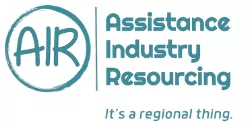Allied Health
For Allied Health Workers
Are you looking for your next work engagement in your career in Allied Health? WORKrNOW gives you the opportunity to present yourself to prospective employers. Simply Join the group and establish your profile. Employers interested in you will contact you and start off a conversation to get to know you better.
For Allied Health Employers
WORKrNOW is not a job ads platform, but a platform giving interested individuals the opportunity to present themselves. Browse profiles and match them with your needs. Join the user group to be able to be able to contact the workers you are interested in.

About working in Allied Health in Australia
Allied health professionals play a vital role in the Australian healthcare system, working across a variety of settings to support patient care, rehabilitation, and wellness promotion. The work environments for allied health professionals in Australia are diverse, encompassing public and private healthcare facilities, community health centers, schools, aged care facilities, and rehabilitation centers.
In hospitals, allied health professionals collaborate with doctors, nurses, and other healthcare professionals to deliver comprehensive care to patients. They may work in departments such as physiotherapy, occupational therapy, speech pathology, dietetics, social work, and podiatry. In these settings, they assess patients’ needs, develop treatment plans, and provide interventions to improve their health outcomes.
Community health centers serve as primary points of contact for individuals and families seeking healthcare services outside of hospitals. Allied health professionals in these settings focus on preventive care, health education, and chronic disease management. They often work closely with community organizations and social services to address the broader determinants of health and promote wellness within the community.
Schools employ allied health professionals to support students’ physical, emotional, and developmental needs. This may include providing speech therapy, occupational therapy, and counseling services to students with disabilities or learning difficulties. Allied health professionals collaborate with teachers, parents, and other school staff to create inclusive learning environments and facilitate students’ academic success.
Aged care facilities rely on allied health professionals to enhance the quality of life for elderly residents. Physiotherapists, occupational therapists, and speech pathologists, among others, help residents maintain mobility, independence, and communication skills. They also work with interdisciplinary teams to address the complex health needs of older adults and ensure their holistic well-being.
To practice as an allied health professional in Australia, individuals must meet specific educational and registration requirements. This typically involves completing a recognized allied health degree, undertaking supervised practice placements, and obtaining registration with the relevant professional board or association. Continuing professional development is essential to maintain registration and stay abreast of advancements in the field.
In conclusion, allied health work environments in Australia offer diverse opportunities for professionals to contribute to the health and well-being of individuals across the lifespan. Collaboration, empathy, and a commitment to lifelong learning are essential qualities for success in these rewarding careers.

